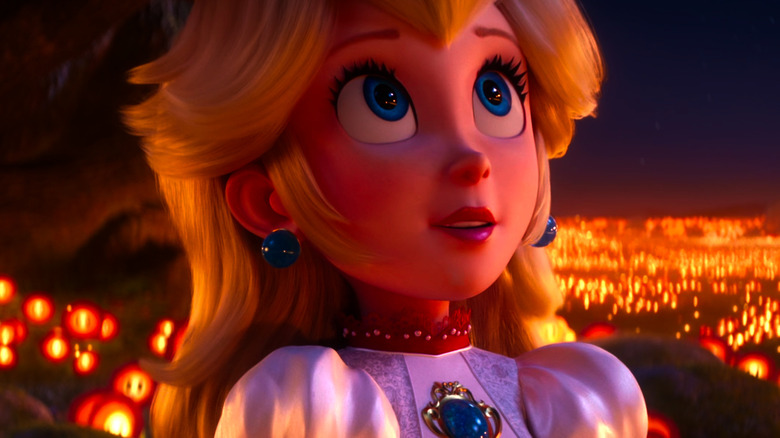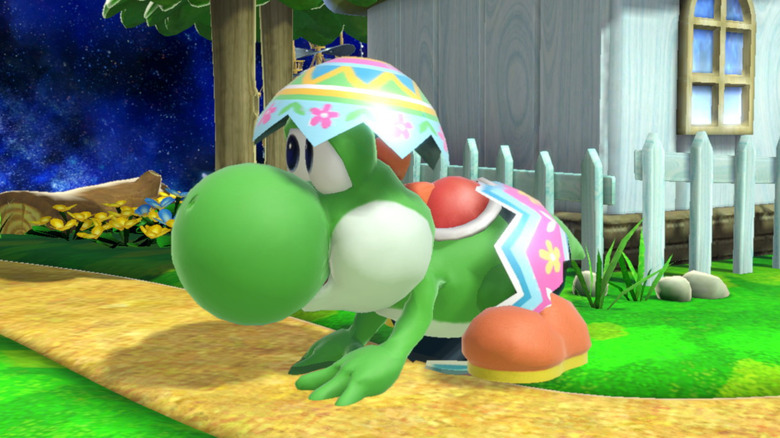Is There A Post-Credits Scene In The Super Mario Bros. Movie?
Contains spoilers for The Super Mario Bros. Movie
Don't be so quick to hit that power button once you think it's game over.
Nintendo and Illumination's "The Super Mario Bros. Movie" has warped its way into theaters across the country, and while the critical reception has been far less than sunny, we can praise the film for one thing: it's only about 90 minutes long. Yet, with its admittedly simple plot and characters, as well as its religious adherence to esoteric Nintendo lore, some adult audience members may be itching for the exit as soon as the credits roll.
But before that curtain closes, viewers should be aware that there is indeed both a mid-credits scene and a post-credits scene that are arguably worth sticking around for, as one hints toward the future of the film series and teases a fan-favorite "Mario" character. If nothing else, you can at least enjoy them without hearing Chris Pratt's polarizing Brooklyn accent. For those that want to savor the surprise in theaters, this is your official spoiler warning.
What happens in the post-credits scenes?
The mid-credits scene for "The Super Mario Bros. Movie" is a callback to an earlier gag in the film, in which Boswer (Jack Black) dramatically serenades Princess Peach (Anya Taylor-Joy) at a piano. Though amusing, the sequence is very similar to the original scene in the film, except — of course — Bowser is now tiny and imprisoned after the events of the film.
The post-credits scene, however, is far more impactful, as it features the fan-favorite character T. Yoshisaur Munchakoopas — Yoshi, for short. Though the character isn't fully seen, his iconic green egg is shown to be hatching in the bowels of the New York City underground.
While fans of the original games may find themselves feeling understandably excited about the movie's closing note (if the film didn't already burn through whatever goodwill they were carrying over from their childhoods), the scene is sort of bizarre compositionally. Despite the fact that this film is marketed at, and almost exclusively intended for, young audiences, the post-credits scene visually quotes the 1998 "Godzilla" movie. Aside from the awkward elephant in the room that the Roland Emmerich film was similarly disappointing and derided by critics after sizable hype build-up, the most engaged members of the audience probably weren't even a thought when that "Godzilla" film was released.

